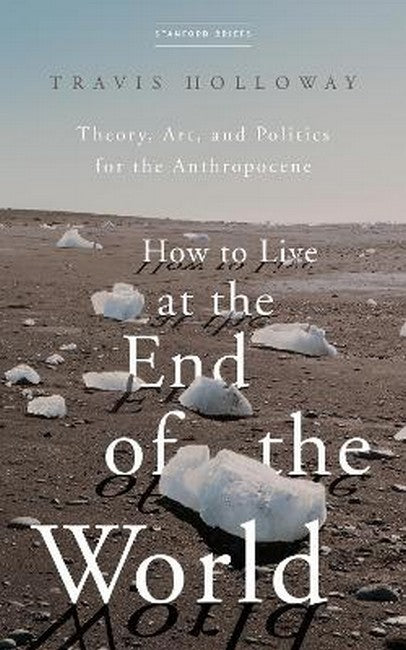Travis Holloway grew up queer and workingclass in a rural factory town affected by free trade and globalization. He is Assistant Professor of Philosophy at SUNY Farmingdale and a poet and former Goldwater Fellow in Creative Writing at NYU.
Request Academic Copy
Please copy the ISBN for submitting review copy form
Description
Introduction: A Philosophy for the End of the World 1. Time: A Counterhistory for Human Beings 2. Art: The Transition from Postmodern Art to the Anthropocene 3. Politics: Democracy at the End of the World
"We may talk casually about the end of the world, but Travis Holloway convincingly argues that the Anthropocene has emerged as a new epic for our time, offering us a narrative of human history, art, and politics capable of shaping the beginning of a new and more collective world."-Anthony Morgan, editor of The Philosopher "A magnificent achievement. Beautifully written and of our time. Going far beyond Arendt's project of thinking a politics of the human condition, Travis Holloway offers a radical concept of the political as a 'democracy of all of the living.'"-Peg Birmingham, DePaul University, editor of Philosophy Today "A powerful and generative text that will help the reader negotiate these disorienting times. Holloway carefully engages with decolonial thought and with the contested category of the Anthropocene to produce a richer sense of the present."-Dipesh Chakrabarty, University of Chicago, author of The Climate of History in a Planetary Age "It requires great concern and care for all forms of life, a poetic imagination, critical thinking and a wide range of interests, from art, politics to geology, to write a book like Travis Holloway's How to Live at the End of the World: Theory, Art and Politics for the Anthropocene."-Sanjeeb Mukherjee, Socialist Perspective "Poet and philosopher Travis Holloway will have none of the current shilly-shallying in his compact book How to Live at the End of the World. The jig is up, and various establishments (including the arts) will have no choice but to confront the inevitably unifying conditions dictated by the Anthropocene. Like it or not, we are on the brink of catastrophe, faced with the collective loss of a reliable and habitable future. Short and provocative, this is my kind of 'how to' book."-Bill Marx, Arts Fuse

